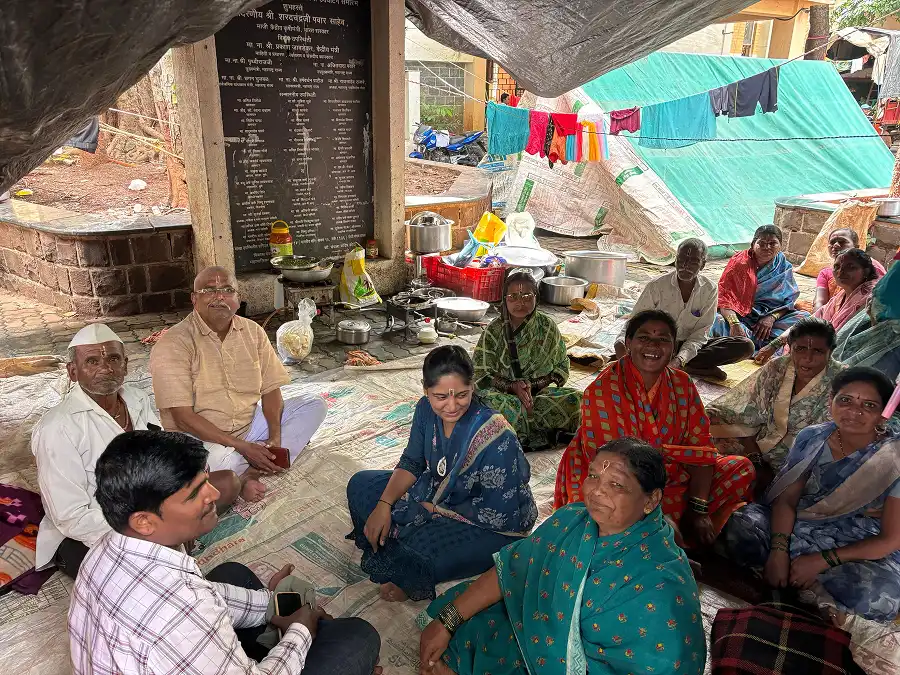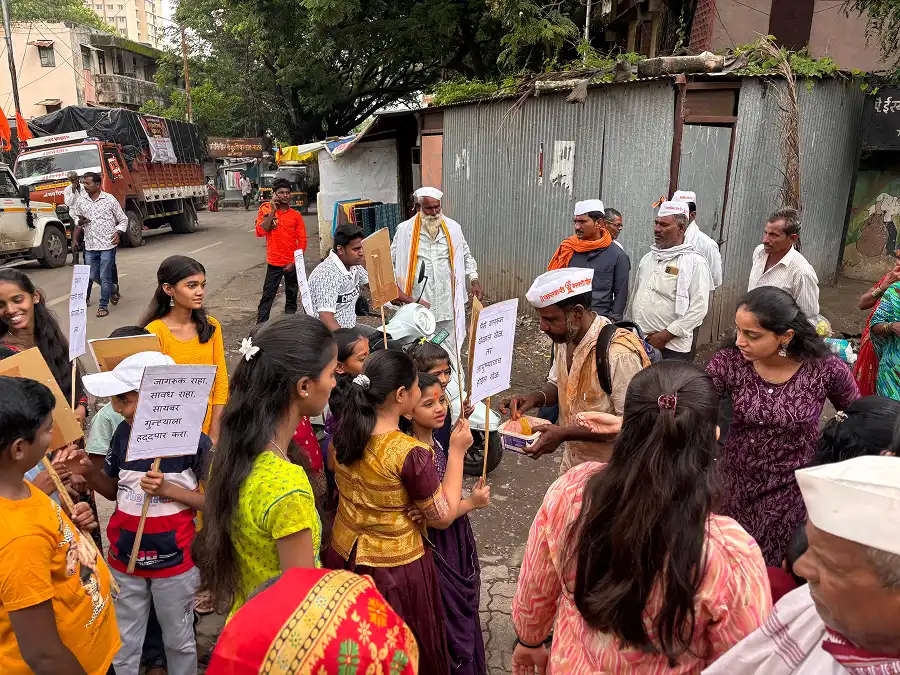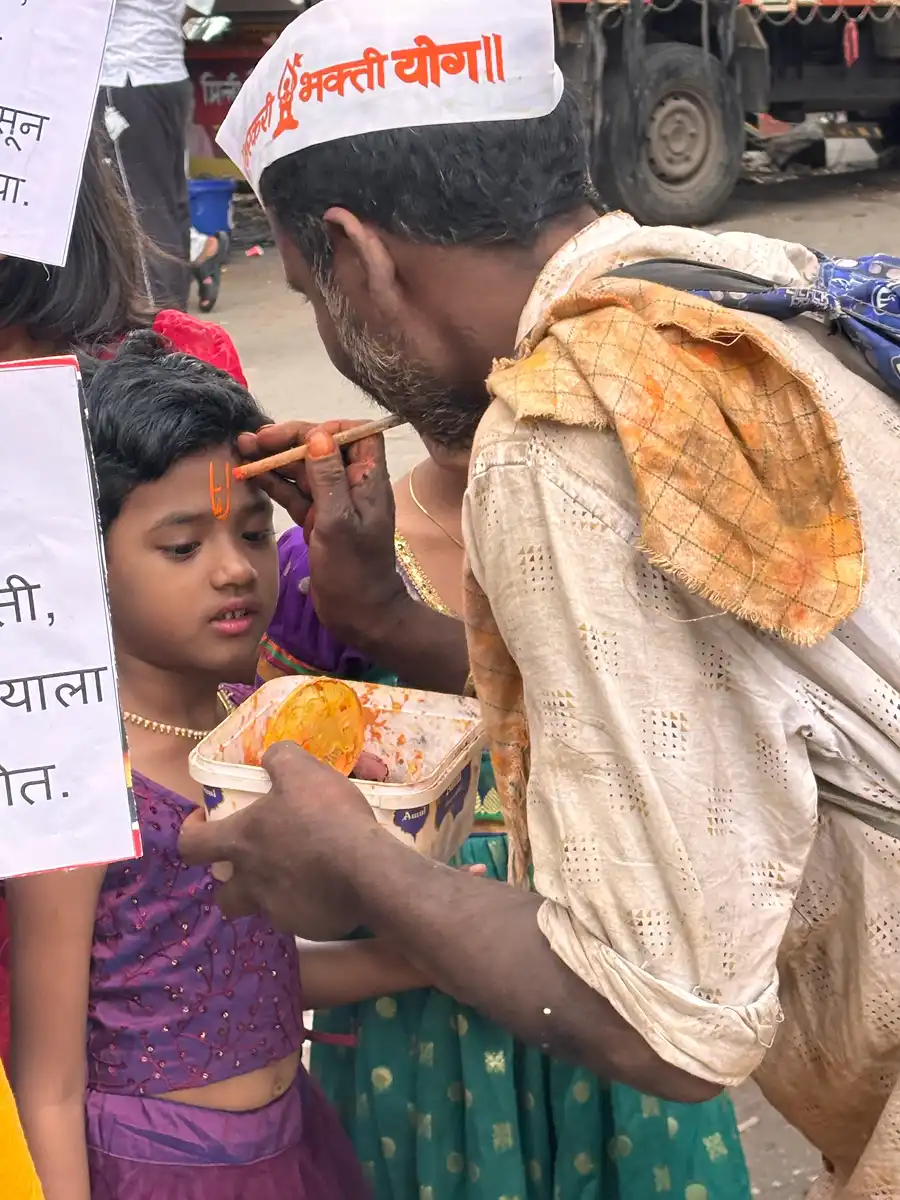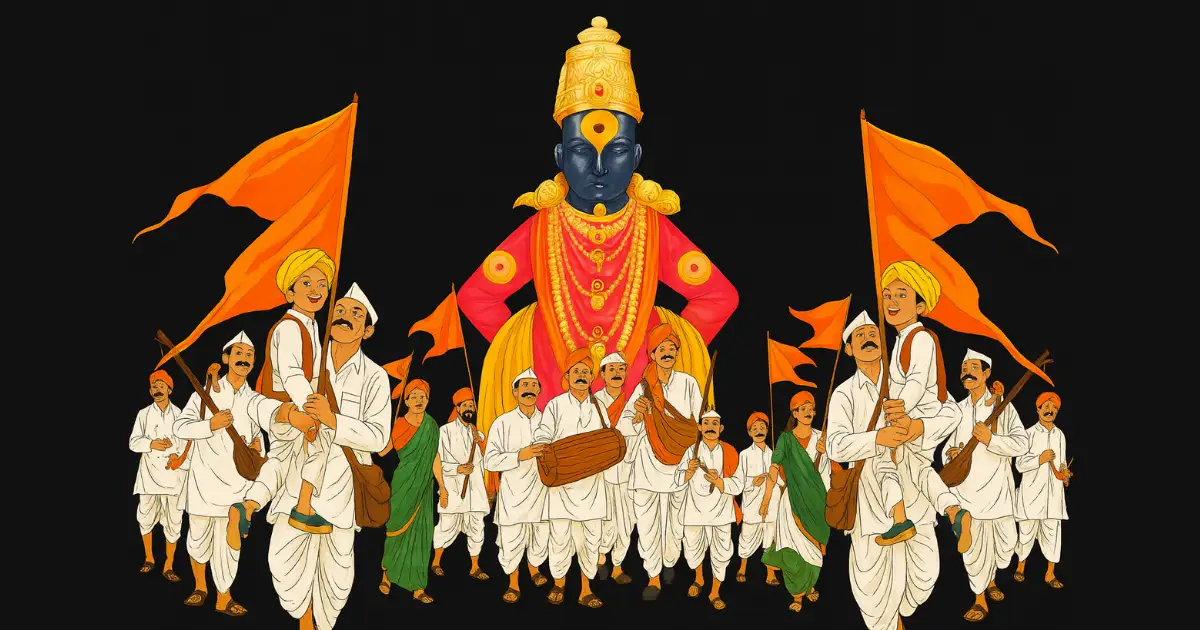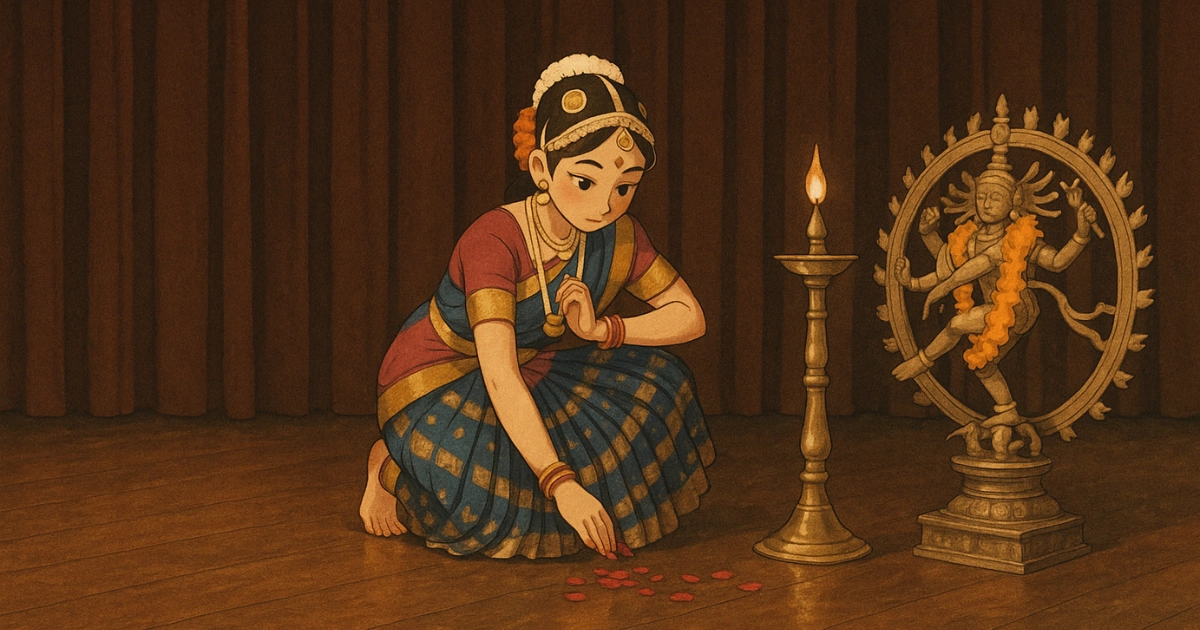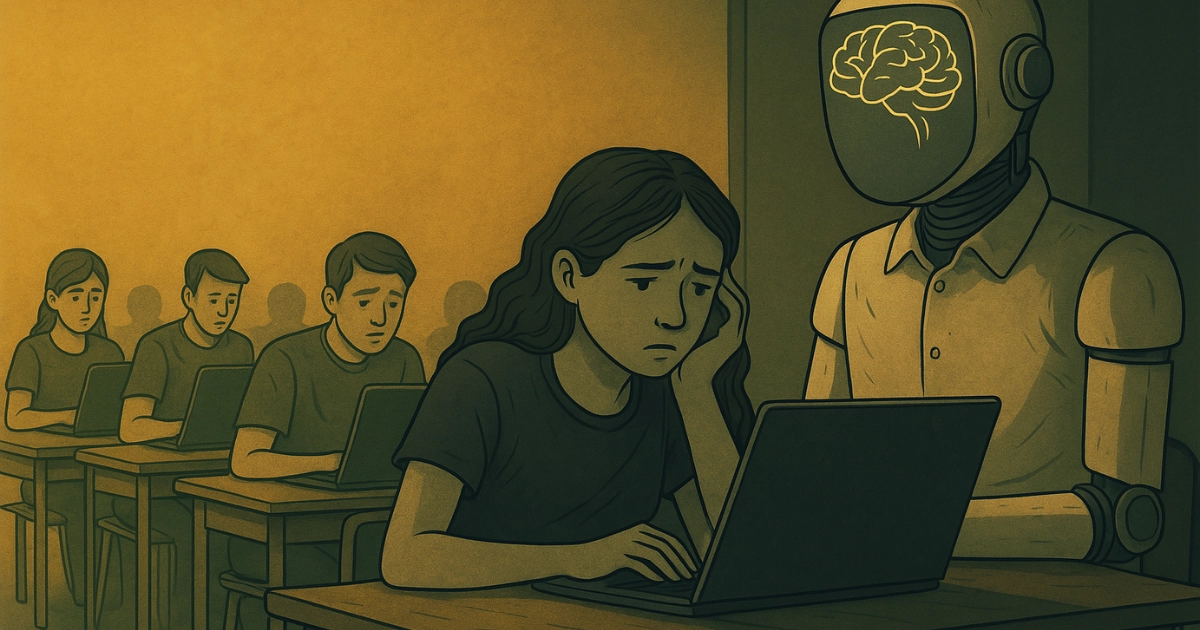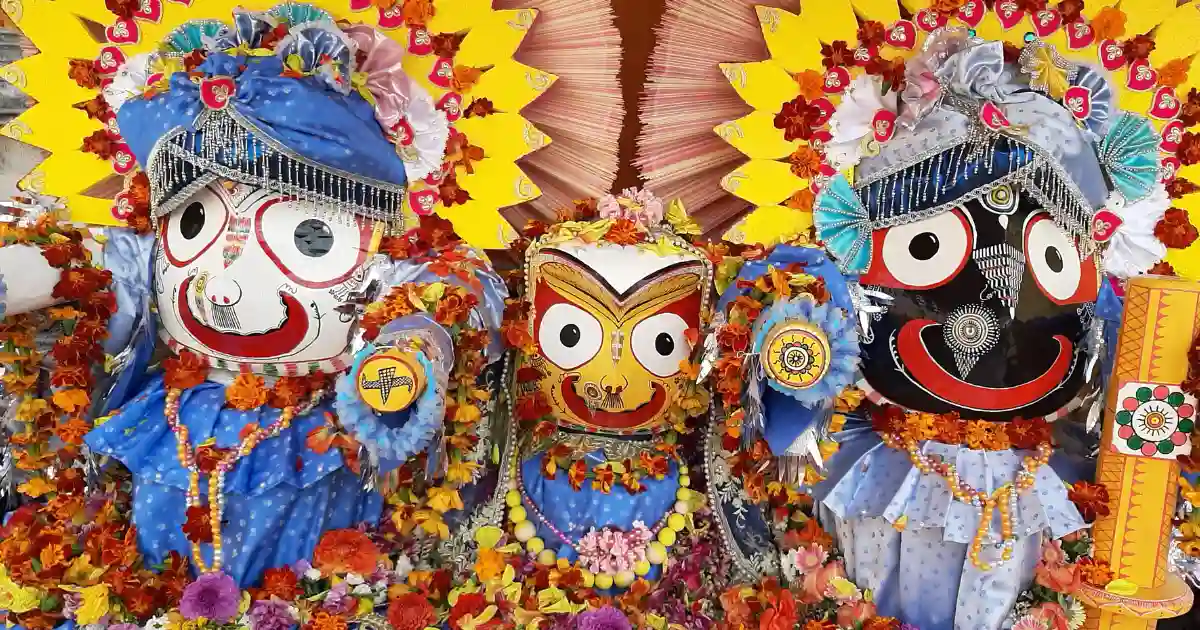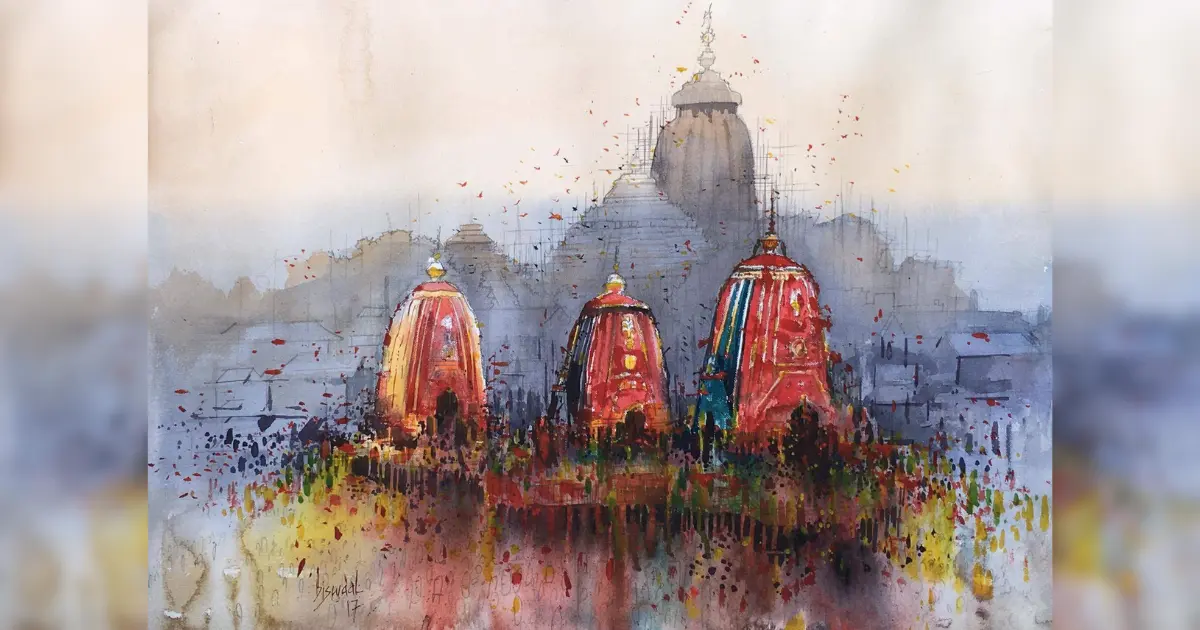I am a Marathi girl, born and brought up in Pune. Pune is renowned for its rich culture, heritage and grandeur. Many people know about Gaṇeśa Caturthi celebrations in Pune, but very few are aware of waari.
What is waari? Waari is a journey. A person who undertakes the waari is called as “waarkari”. Every year, thousands of people across Maharashtra undertake a pilgrimage to the holy town of Pandharpur, the abode of Lord Viṭṭhala and Rukminī Devī.
They walk in groups from their native village, all the way to Pandhurpur covering hundreds of kilometres on foot.
What keeps them going? Their eternal love and bhakti for Lord Viṭṭhala.
A lot of saints and their works have inspired and continue to inspire generations. Equality, omnipresence of divine, social cohesion and community well-being are at the heart of the teachings of these saints. Their philosophies had a profound impact on the Bhakti movement.
Right from Sant Namdeo, Sant Tukaram and Sant Dnyaneshwar to Sant Janabai and Chokhamela, the saints composed a popular form of Marathi literature called abhanga. I grew up listening to abhangas penned by these great saints. Abhangas can be loosely translated as songs in praise of the Lord. However, they are not just praises, but verses latent with profound life philosophy. This eternal philosophy is what makes these verses ‘a-bhanga’: bhanga meaning destructible and with the prefix “a”, translating to indestructible.
Every year, I would read about the waari coming to the city, the roads being closed and NGOs setting up various camps to help the warkaris. I always wanted to experience waari, soak myself in that environment and talk to the warkaris.
Last weekend, I decided to take that step and meet the warkaris. I was drawn towards it, but I was a little hesitant at the beginning. So many questions flooded my mind.
How will I go? Where will I go? Will the warkaris talk to me? I am going alone… will it be safe?
But something within just propelled me towards taking the first step. A step of what would be a transformational journey.
I went to an area of the city where I had never been before. Lohiyanagar is one of the areas where groups of warkaris halt for the day before they continue their journey towards Pandharpur. Since the area was new to me, I mobilized a few contacts that would help me navigate. I met a friend who took me to various camps. We chatted with the warkaris and listened to their stories.
A woman who fought against her family to come to the waari, many women assuring me how safe it is to travel, men sharing their experiences, kids asking me to sing and dance with them, and certain groups inviting me to continue the journey up to Pandharpur. I had become one of them. I felt extremely welcome as all of them opened up their hearts to me.
Usually, a lot of schools provide facilities for the warkaris to stay for the night. I went to one of these schools. As soon as I entered, I could hear the cymbals, the bells, and the chants singing praises of Lord Viṭṭhala. Some group was singing kīrtanas and bhajans. I asked my friend whether we could go and join them. He said, “We can try. If they say anything, we will leave.”
We went and sat at the back. An old uncle who was leading the group saw us. He gestured to us to come and sit in the front. With some reluctance, we went and sat in the front. We didn’t want to disturb them. The uncle concluded the ongoing song and beckoned me to take the lead and sing. I was taken aback. I told them I am not well versed with any of the abhangas. He replied, “You have your phone, right? Look up the lyrics and sing.”
I was shocked, surprised and excited. All at the same time. I am not a good singer, nor have I ever sung the abhangas. It was a little daunting to sing the abhangas with a group of warkaris who have been singing them for years. I thought that this feeling of nervousness and anxiety would persist. However, there was something about being in the presence of warkaris. I started singing, they joined me, and just like that, I was at ease. We all were in sync. We sang, we talked, we discussed. I heard so many stories, each different, yet every single one leading to Lord Viṭṭhala.
Many of the warkaris, especially women, didn’t know how to read and write. However, they would seamlessly quote great saints and their abhangas while answering questions pertaining to spirituality and philosophy. I was overcome with joy. I felt grateful that I could meet these people and learn something from them.
On my way to meet the warkaris, I lost my way twice. There were moments where I questioned my decision. But, in the end, it was all worth it. As one of the warkaris told me -
If you are determined from within to undertake the journey, the divine makes sure that you will reach the destination.
Waari is a time where the society comes together. One can see student organizations conducting medical camps, organizing cleanliness drives and distributing food. One of the warkari remarked:
We undertake this journey, but the society stands up for us. We don’t have to call anyone or update anyone about our travel. People gladly open their homes and hearts for us.
Waari is a journey that transforms us from within. It is a reminder of how bhakti can unite everyone irrespective of their caste, class or creed. There is no one who is superior or inferior. During waari, everyone is a devotee.
Waari is indeed a grand celebration of the spirit of our civilizational ethos!
And like anything Bhāratīya, it is best understood when it is experienced.
Hope to see you soon in Pandharpur!
Rāma Kṛṣṇa Hari!
